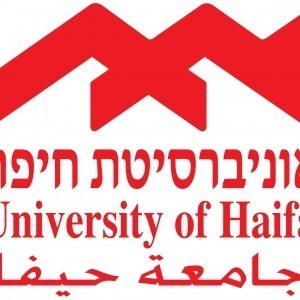Photos of university / #arizonastateuniversity
The Bachelor of Arts in Global Health at Arizona State University is a comprehensive interdisciplinary program designed to prepare students to address complex health challenges that transcend national boundaries. Through rigorous coursework and hands-on experiences, students will explore the social, economic, political, and environmental factors influencing health outcomes worldwide. The program emphasizes an understanding of health disparities, disease prevention, health promotion, and health policy in diverse cultural contexts. Students will engage with topics such as epidemiology, global health systems, infectious and non-communicable diseases, and ethics in global health practice. The curriculum encourages critical thinking and cultural competence, equipping graduates with the skills necessary to work in international health organizations, governmental agencies, NGOs, and research institutions. Alongside classroom learning, students have opportunities for internships, research projects, and study abroad programs to gain practical experience and develop professional networks globally. The program aims to produce culturally sensitive and socially responsible global health professionals who can contribute effectively to improving health outcomes and achieving health equity worldwide. With a combination of theoretical knowledge and practical application, graduates will be well-prepared to tackle current and emerging global health issues and make meaningful contributions to improving health and wellbeing across diverse populations.
30 Credit Hours including the required applied project course (SSH 593)
All students are required to take the following four foundational courses (12 credit hours):
- ASB 500 Ethnographic Field Methods (3)
- ASB 503/SSH 503 Medical Anthropology (3)
- ASB 510/SSH 510 Health: Social and Biocultural Theories (3)
- AML 613 Methods and Concepts in Math Epidemiology OR SSH 591 Principles of Epidemiology for Global Health (3)
Substitutes may be permitted by the graduate director, including individualized research, conference and independent study courses with approved faculty. Additional methods-focused courses or graduate-level epidemiology courses can count toward this requirement.
Students are also required to complete a minimum of six credit hours of practicum, six credit hours of electives and six credit hours of an applied project. Applied projects are completed in consultation with a faculty advisor; options include internship, practicum, a research project, scholarly research paper or an outreach project.
All students must maintain a 3.00 (out of 4.00) average GPA on both the interactive plan of study and graduate GPAs per the Division of Graduate Education satisfactory academic progress policy.
Applicants must submit the online graduate admission application. Please see the program website for application deadlines and admission terms.
In addition to the general requirements for admission to the Division of Graduate Education, applicants must also provide:
- a statement of purpose outlining career and educational goals
- a current curriculum vitae or resume
- an optional sample of their written work
- three letters of recommendation
- official GRE scores
- transcripts of all undergraduate and graduate course work
- proof of English language proficiency*
*An applicant whose native language is not English (regardless of current residency) must provide proof of English proficiency.
Applicants must fulfill the requirements of both the Division of Graduate Education and the College of Liberal Arts and Sciences.
Admission is competitive and based on student academic excellence, additional relevant experience, and fit to available faculty. Minimum GPA for consideration for admission would normally be 3.50 on a 4.00 scale for the last two years of study leading to the bachelor's degree. A degree in the social or life sciences (i.e., anthropology, sociology, gender studies, geography, political science), public health or related fields (i.e., nutrition, human biology) is generally expected for applicants. Value will be placed on:
- foreign language skills
- practical, cross-cultural and international experiences
- prior social science and life science research
The Arizona State University offers a comprehensive approach to financing studies for its Global Health program, designed to support both undergraduate and graduate students in managing the costs associated with their education. Tuition fees vary depending on the degree level, residency status, and specific program details. Undergraduate students enrolled in the bachelor’s program can expect to pay approximately $11,500 per academic year for in-state residents and around $33,000 for out-of-state students. Graduate students pursuing a Master of Science in Global Health typically face tuition costs close to $13,000 per year for in-state applicants and approximately $30,000 for out-of-state applicants. These figures are approximate and can fluctuate yearly based on university policies and inflation adjustments.
Arizona State University provides a variety of financial aid options for eligible students, including scholarships, grants, federal student aid, and work-study programs. Merit-based scholarships are available for high-achieving students, with specific awards designated for those entering health-related fields. Additionally, the university offers need-based grants aimed at supporting students from diverse socioeconomic backgrounds. Students are encouraged to complete the Free Application for Federal Student Aid (FAFSA) to determine eligibility for federal loans and grants, which can significantly offset the direct costs of education.
Furthermore, ASU offers payment plans that allow students to divide tuition into manageable installments throughout the semester or academic year, reducing financial burden. Many students also pursue part-time employment opportunities on and around campus to supplement their income. For international students, the university provides tailored financial support options, including scholarships and assistantships, to help cover tuition and living expenses.
Research funding and assistantship opportunities are available for graduate students, offering stipends in exchange for research work or teaching responsibilities. These financial supports not only help alleviate tuition costs but also provide valuable academic and professional experience. External scholarships from health organizations, foundations, and governmental agencies can also be accessed through the university’s external funding resources.
Overall, Arizona State University is committed to providing extensive financial support options tailored to the needs of its Global Health students, making quality education accessible and affordable. Students are advised to consult the university’s financial aid office early during their application process for personalized guidance and to explore all available funding sources to ensure a successful and financially sustainable educational experience.
The Bachelor of Arts in Global Health at Arizona State University is designed to prepare students to understand and address complex health issues that affect populations worldwide. This interdisciplinary program combines coursework from public health, global studies, social sciences, and natural sciences to provide a comprehensive understanding of health disparities, infectious diseases, environmental factors, policy development, and healthcare systems across different cultures and regions. The curriculum emphasizes critical thinking, research skills, and cultural competency, equipping students to work effectively in diverse international settings. Students have opportunities for experiential learning through internships, research projects, and study abroad programs that deepen their understanding of global health challenges and solutions. The program aims to produce graduates who are capable of contributing to health equity, policy reform, and sustainable health initiatives at local, national, and international levels. It also prepares students for advanced studies in health-related fields, including public health, medicine, and global development. The faculty involved in this program are experts in epidemiology, health policy, environmental health, and social determinants of health, providing mentorship and guidance to students. Graduates of the program find careers in international health organizations, non-governmental organizations, government agencies, research institutions, and healthcare providers. The program is designed to foster a global perspective while grounding students in fundamental health sciences and social justice principles. Overall, the Global Health major at Arizona State University aims to develop knowledgeable, culturally sensitive professionals committed to promoting health and well-being worldwide through innovative solutions and collaborative efforts.










